

Teaching young children how to use their hands for kindness rather than harm is foundational to building a caring classroom culture. At ages four and five, children are still developing self-regulation and may act out physically when emotions feel overwhelming. As educators, we can guide them toward prosocial alternatives, equip them with emotional vocabulary, and partner with families to reinforce healthy touch at home.
Children don’t learn to read by starting with phonics worksheets—they begin with listening, talking, imagining, and playing. Pre-reading skills emerge organically when environments are rich in language, storytelling, and joyful exploration. These foundational abilities must be nurtured before formal reading instruction begins.
In a world where safeguarding begins with everyday interactions, teaching consent to toddlers and preschoolers isn’t just possible—it’s essential. Long before children understand the word “consent,” they can learn what it feels like to be respected, heard, and safe. These early lessons lay the foundation for lifelong boundaries, empathy, and self-worth.
Simple songs about consent gently introduce children to concepts like body autonomy, boundary-setting, and respectful communication in ways that feel playful, affirming, and easy to remember. By pairing repetitive rhymes with hand motions, call-and-response, and relatable scenarios, these songs help children internalize messages such as “I can say no,” “I ask before I touch,” and “My voice matters.” Whether used in circle time, transition moments, or home routines, they offer educators and families an emotionally safe, joyful way to teach consent from the ground up.
Creating a safe and empowering environment for preschoolers begins with intentional, age-appropriate education around body autonomy, emotional literacy, and help-seeking skills. This article offers a collection of EYLF-aligned, trauma-informed Child Protection activities designed to foster safety, resilience, and voice in young learners.
Snakes are one of nature's most fascinating creatures, often misunderstood yet deeply woven into Australia’s unique biodiversity and Indigenous culture. By exploring native Australian snakes through play and learning, children can develop respect for wildlife, connect to Country, and expand their understanding of animal behaviors, habitats, and cultural significance. The following article provides information on Snake Theme Activity Ideas, Importance Of Learning About Snakes, Goals For a Snake Theme, Linking To The EYLF, Follow Up Themes and more.
In a heartwarming episode of Playschool titled “Island Life,” features Uncle Charles Passi, a proud Torres Strait Islander, joins the show and introduces viewers to the sit-down dance “Taba Naba,” a traditional Torres Strait Islander song that celebrates island life, the sea, and community connection. This is a great opportunity for educators to learn to dance to teach children.
In a world where children are constantly learning how to navigate relationships, boundaries, and emotions, Lulu Says Yes, Lulu Says No is a free children's story to introduce the concept of consent. Through the eyes of Lulu the Ladybug, children explore what it means to feel safe, respected, and empowered to make choices about their own bodies. This story is more than a tale—it's a teaching tool that supports social-emotional learning, body autonomy, and respectful communication in early childhood settings. The following article provides the free children's book Lulu Says Yes, Lulu Says No, Learning Objectives, Link to the EYLF, Discussion Prompts, Extension Ideas and more.
Incorporating STEAM displays within early learning environments offers children rich, open-ended opportunities for discovery, creativity, and problem-solving. From light tables with translucent materials to interactive coding corners and nature-based science trays, each provocation is designed to ignite curiosity and encourage independent exploration. The following provides a list of STEAM Displays and Learning Provocations For Children To Explore Independently.
Celebrating NAIDOC Week with babies aged 0–12 months is a beautiful opportunity to introduce them to the richness of Aboriginal and Torres Strait Islander cultures through sensory, visual, and rhythmic experiences. Here are some gentle, age-appropriate ideas tailored for your littlest learners.
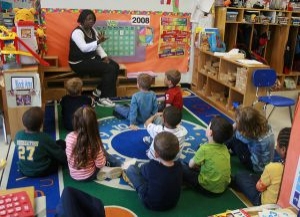 Working as a childcare professional can be a challenge especially when dealing with behavioural problems which may arise. The techniques we use when dealing with… Read More
Working as a childcare professional can be a challenge especially when dealing with behavioural problems which may arise. The techniques we use when dealing with… Read More
 There are different types of behaviour that children can display and sometimes it can be hard to manage, especially if a child is having behavioural… Read More
There are different types of behaviour that children can display and sometimes it can be hard to manage, especially if a child is having behavioural… Read More
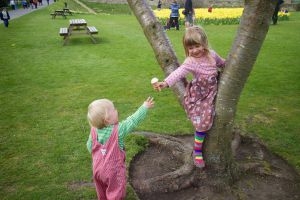 As a parent, your behavioural expectations of your child can be higher than what is actually developmentally appropriate for your child's age.
Read More
As a parent, your behavioural expectations of your child can be higher than what is actually developmentally appropriate for your child's age.
Read More
 As Educators, there will be many instances where you will need to write about a child's behaviour. For a behaviour management plan, assessments, half-yearly or… Read More
As Educators, there will be many instances where you will need to write about a child's behaviour. For a behaviour management plan, assessments, half-yearly or… Read More
 As Educators when communicating with Parents (through verbal or non-verbal communication), there will be times where we need to discuss issues or concerns that may… Read More
As Educators when communicating with Parents (through verbal or non-verbal communication), there will be times where we need to discuss issues or concerns that may… Read More
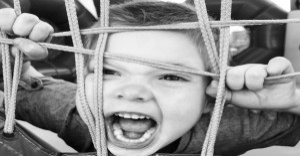 Challenging Behaviour is when a child does something that hurts themselves and/or other people.
Read More
Challenging Behaviour is when a child does something that hurts themselves and/or other people.
Read More
 As part of your child's development it is normal for your child to have anxiety and fears. A baby commonly shows a fearful sign to… Read More
As part of your child's development it is normal for your child to have anxiety and fears. A baby commonly shows a fearful sign to… Read More
 It's always difficult to bring up behavioural issues with parents, it can be nerve wrecking to tell a parent that their child misbehaves but that… Read More
It's always difficult to bring up behavioural issues with parents, it can be nerve wrecking to tell a parent that their child misbehaves but that… Read More
 All children deal with anger on a daily basis. Thinking about it as a child, there is a lot to be angry about. Elder people… Read More
All children deal with anger on a daily basis. Thinking about it as a child, there is a lot to be angry about. Elder people… Read More
 It is important to understand that your child behaviour problems could not just be from attention seeking. There are many factors to take into consideration… Read More
It is important to understand that your child behaviour problems could not just be from attention seeking. There are many factors to take into consideration… Read More
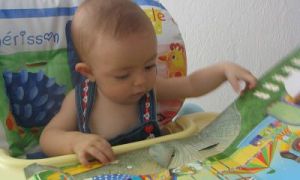
Babies use of language at this stage changes so much that it's hard to notice...
See more...
Gardner proposed a theory of multiple intelligences that suggests there is more than one intelligence...
See more...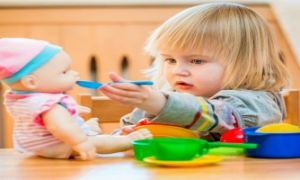
Swiss psychologist Jean Piaget theorized in the pre-operational stage between two and seven years, children...
See more...© 2009-2025 Aussie Childcare Network Pty Ltd. All Rights Reserved.

